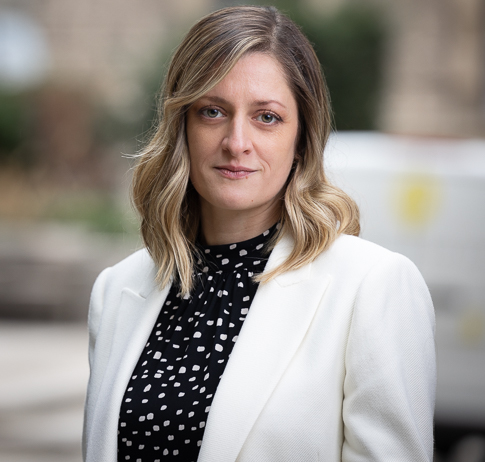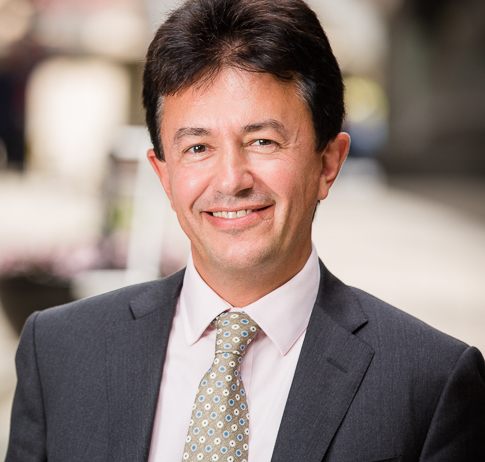Probate
Probate is the legal process whereby the estate of a person who has died is dealt with. If the person has made a Will this usually appoints people to be executors to administer the estate. If there is no Will, then next of kin will be appointed by the court as administrators instead. We refer to executors and administrators as personal representatives (‘PR’s) below.
Estate Administration
At this difficult time for families, we see it as our role to make the process as smooth as possible.
The first step PRs need to take is to apply for formal authority to deal with the assets of the estate. We refer to this authority as ‘the Grant’ on this page. The PRs will then need to identify the assets and collect them in, pay any debts, calculate and pay to HMRC any inheritance tax (IHT) which may be due and then distribute the estate between the beneficiaries. The beneficiaries will be determined by the Will, if there is one, or the Intestacy Rules if there is not. There are many other things which PR have to do in administering an estate. Our note on the Administration of Estates explains more about what is involved in the administration of estates.
Our team of probate specialists can advise and help PRs. We have particular expertise in high value estates and IHT matters. The team comprises probate specialists who spend the majority of their working lives on probate matters only. We specialise in complex matters including international matters and issues such as businesses and foreign assets. This guidance sets out the service we offer and how we charge for it.
Our team
Our team comprises two partners and six other lawyers and paralegals.
All cases will be managed by one of the partners or special counsel who will work with other members of our team with the appropriate level of experience.
PARTNERS
OTHER TEAM MEMBERS
Christopher King – Special counsel
Elizabeth Lane – Senior associate
Emma Becher - Associate
Charlotte Kipping – Chartered legal executive
David Bishop - Paralegal
Hannah Collins - Paralegal
The team is also assisted by trainee solicitors who will spend six months working with the team. Their overall experience of legal practice will depend on what stage of their two-year training period they have reached and any prior experience gained before they started their training contract.

Dora Clarke
Partner | London

Carrie Duncan
Partner | London

Christopher King
Special counsel | London

Elizabeth Lane
Senior associate | London
Our charges
Our charges vary according to the structure and complexity of the estate. Every estate is unique, and a personalised fee estimate will be provided to you at the outset of the matter. Before we can give you an accurate estimate, we will first set up an informal conversation with you to understand more about the estate and what is likely to be involved in the administration.
Our estimates are calculated with reference to the time spent by the advisers dealing with the matter and their hourly rate. Rates vary according to the experience and seniority of the person undertaking the work.
Our current hourly rates are:
- Partners and Special counsel: £690-1020
- Senior associates: £560-790
- Associates: £520-605
- Paralegals and Legal executives: £250-£360
- Trainee solicitors: £300-370
Please note that these rates do not include VAT and disbursements. Our hourly rates are reviewed annually on 1 July. VAT is applied at a rate of 20% to our fees and, where applicable, disbursements.
If a partner of this firm or our trust corporation, Withers Trust Corporation Limited (WITCo) is appointed as the PR, then we will also charge a one-off fee of £1000.
Our fee estimates
The below fee structures are intended as a guide only and charges will vary based on the individual components of each estate. Please contact a member of our team to obtain a personalised quote.
We will normally estimate our fees in two stages:
Stage 1 – Applying for the grant of representation
Stage 2 – Administering the estate.
Straightforward Estate where no full inheritance tax return required (UK assets only) – Fees between £4,000 and £10,000 plus VAT and disbursements
For example, a straightforward estate with a valid Will naming an Executor who will act. A legacy is left to an adult child with the rest of the estate passing to the surviving spouse and spouse exemption for inheritance tax can be claimed. There is one property which passes to the spouse by survivorship. A Grant is required to access some of the assets such as bank accounts. There is no inheritance tax to pay. The family are able to undertake some of the less complex probate tasks themselves, such as notifying relevant authorities of the death.
Straightforward Estate where inheritance tax return required (UK assets only) – Fees between £10,000 and £32,000 plus VAT and disbursements
For example, a straightforward estate with a valid Will naming an Executor who will act. There are multiple legacies and the residue is divided between charities and nieces and nephews. A full inheritance tax return is required and there is some inheritance tax to pay. There is a partial transferable nil rate band from a predeceased spouse. There are properties and some investments to be sold. One of the properties was a rental property with a tenant in situ.
Complex Estate (UK assets only) – fees between £32,000 and £100,000 plus VAT and disbursements
For example, a complex estate where the deceased did not leave a valid Will, requiring advice on the intestacy rules. The deceased left a spouse, adult children and minor children. They made substantial lifetime gifts within the last 7 years. The deceased owned a farm and other properties. The estate's value is over £5million with a complex investment portfolio. IHT is payable although some reliefs may be available, requiring further investigation and liaison with the deceased's lifetime advisers. The deceased was born outside the UK but has lived in the UK for many years, requiring advice on potential residency issues and taxation implications.
Complex Estate (with overseas assets) – fees dependent on circumstances
For example, a complex estate valued at over £20million where the deceased owned properties in multiple countries, along with international bank accounts and an offshore trust structure. The deceased owned a business. They made several Wills applicable to their assets in different jurisdictions and we need to liaise with advisers in multiple jurisdictions. There is tax to pay in another jurisdiction and a double tax treaty may apply.
We regularly provide advice in relation to international estates. These can be particularly complex and will need to be quoted individually in each case. Where appropriate, we may involve our colleagues in other Withers offices to provide local advice in other jurisdictions. We will advise you as to their hourly rates where required.
Disbursements
Disbursements are costs related to your matter that are payable to third parties. Some that usually be incurred are as follows:
- Probate application fees which are currently £300 plus £1.50 for each official copy of the grant of representation obtained. We usually obtain at least 10 copies of the Grant;
- Valuation fees which, if required, can range from around £500 plus VAT a simple valuation to over £20,000 plus VAT for a complex asset;
- Costs of advertising for unknown creditors which are usually approximately £250 to £400 plus VAT; and
- Bankruptcy searches for each beneficiary which are normally £2 for UK residents and around £75 for overseas beneficiaries;
- Third party fees, such as:
- Asset searches
- Translation costs
- Overseas lawyers’ fees.
VAT will be charged where the PRs are resident in the UK or the EU.
Scope
We will provide a scope of work tailored to your particular circumstances once we have been provided with a completed probate questionnaire and full details of your circumstances. Our service will usually involve the following steps, although some may not be required in every case:
- Advising on the terms and construction of the Will and any codicils, their legal and tax implications and the role, duties and responsibilities of the PRs. Alternatively, our advice will be on the application of the Intestacy Rules if there is no Will and who is entitled to apply for authority to administer the estate
- Giving advice on the identification and valuation of the assets and liabilities of the estate. Valuations of assets may incur separate valuation fees - for example from a stockbroker or estate agent
- Issuing notices enquiring about any potential claims against the estate from unknown creditors
- Advising on IHT compliance matters and drafting the IHT return
- Lodging the IHT return with HMRC for preliminary checking that the tax is calculated correctly or that there seems to be no tax to pay and dealing with any issues arising
- Calculating, agreeing how to fund and paying any IHT falling due on the application for the Grant and advising the PRs if any IHT can be postponed and paid later
- Drafting the statement of truth and any other relevant papers leading up to the application for the Grant which may include attending a meeting with the PRs to review and sign the documentation.
- Lodging the Grant application with the Probate Registry and answering any questions in relation to the application which it may have. Where possible, the Probate Registry's online application will be used although a paper application is still required in some cases
- Once the Grant has been issued, registering it with asset holders as appropriate
- Collecting in the assets of the estate and paying debts – both those which existed at death and those arising later such as ongoing property expenses
- Carrying out searches to check that none of the beneficiaries of the estate is bankrupt
- Arranging payment of any cash legacies and advising on any legacies in the Will
- Co-ordinating any negotiations needed with HMRC for IHT purposes over the valuations of assets and any reliefs and exemptions against IHT such as the relevance of any trusts or lifetime gifts
- Preparing estate accounts as appropriate showing all the financial transactions in the estate
- Advising PRs on their responsibilities regarding income tax and capital gains tax both for the person who has died up to the date of their death and for the PRs while they are administering the estate. We can assist with the preparation of returns either by doing this work ourselves or by using the services of an accountant in which case additional charges will arise.
- Arranging for distributions to be made to the beneficiaries or advise the PRs on any trust which the terms of the Will may set up
- Liaising with and reporting to PRs and the beneficiaries of the estate as appropriate
- Providing the beneficiaries with details of their share of any income the assets of the estate have earned which they may need to report on their personal tax returns.
Timescales
On average, most estates are administered within two years of death. Typically, obtaining the Grant takes around six months. The more complex the estate, the longer the administration will take.
Our related services
Get in touch
Our website will give you a flavor of the advice we provide - if you would like to talk to us for more information, please contact our client services team who will be happy to assist.